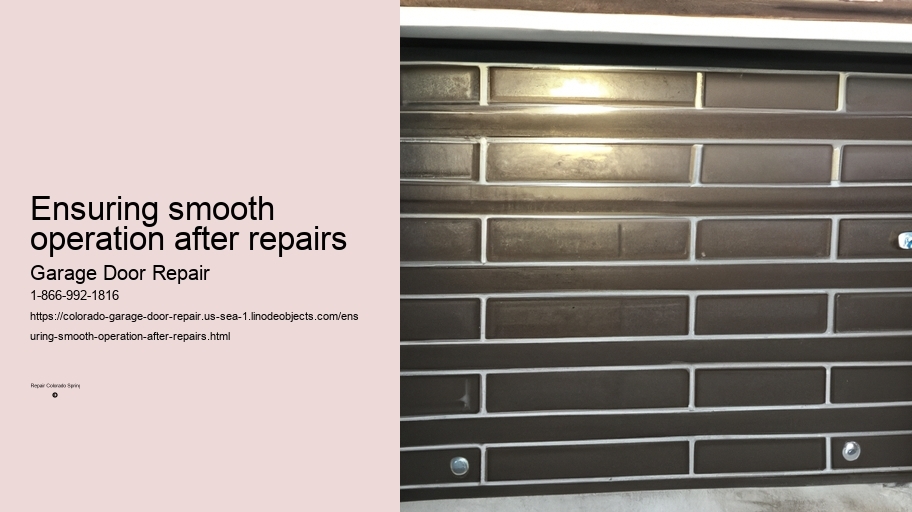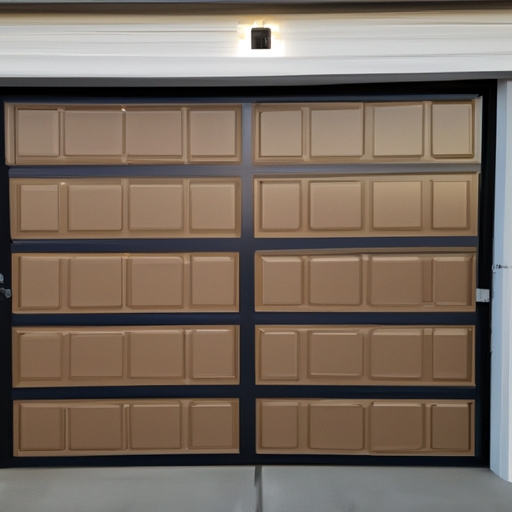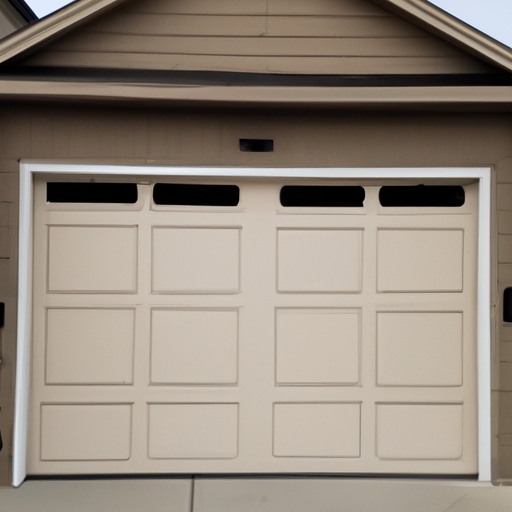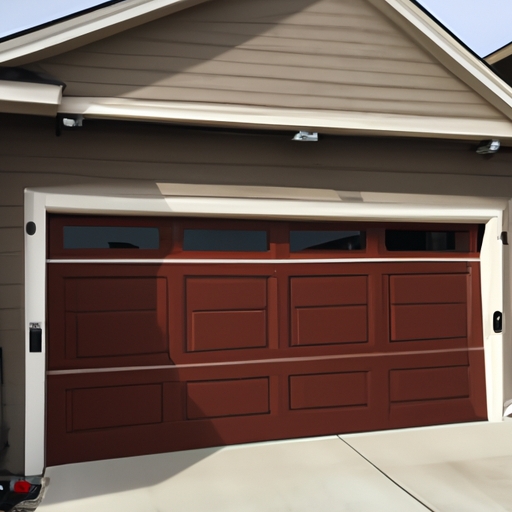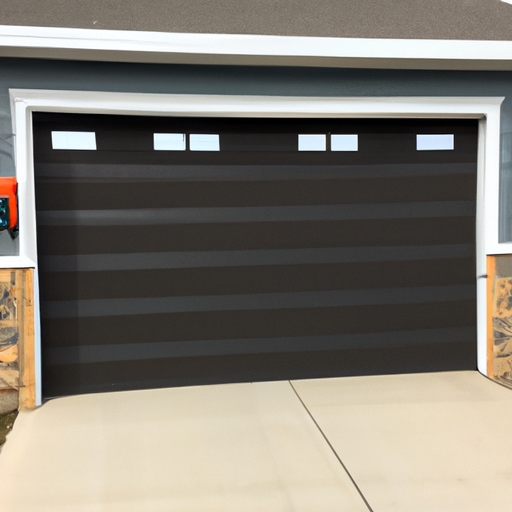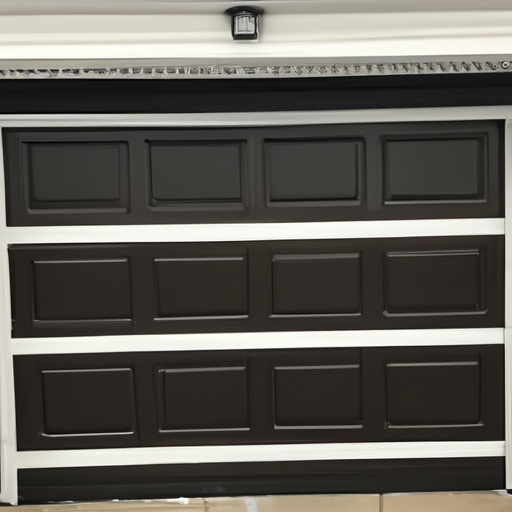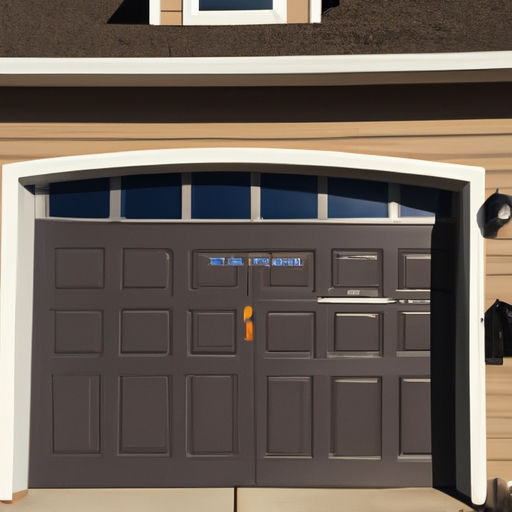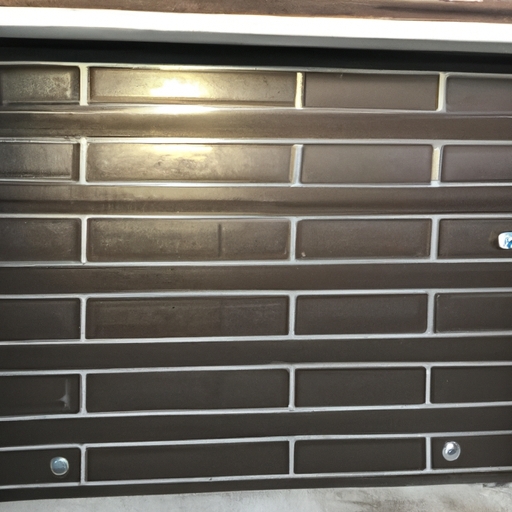Understanding common issues that may arise after a garage door repair
After a garage door repair, it is important to ensure smooth operation. However, there are common issues that may arise (as a result of) the repair process. These issues can hinder the proper functioning of your garage door and cause inconvenience. Therefore, it is crucial to be aware of these potential problems and take necessary steps (in order to) avoid them.
One common issue that may occur after a garage door repair is misalignment. This happens when the tracks that guide the door become skewed or bent. Misalignment can prevent the door from opening or closing properly, causing frustration (and annoyance). To rectify this problem, you should inspect the tracks for any signs of damage or obstructions. If needed, adjust them using appropriate tools or seek professional help.
Another possible issue is noisy operation. After a repair, your garage door should operate smoothly and quietly. However, if you notice unusual sounds such as grinding or squeaking noises, there might be an underlying problem (that needs to be addressed). Noisy operation can indicate worn-out rollers or hinges, loose hardware, or inadequate lubrication. Applying lubricant on moving parts regularly can help reduce noise and improve performance.
In addition to misalignment and noisy operation, another issue that may arise after a garage door repair is sensor malfunctioning. Garage doors are equipped with safety sensors that detect obstacles in their path (so as to) prevent accidents. If these sensors are not working correctly, your garage door may stop unexpectedly while opening or closing. To fix this problem, check if there is any dirt or debris blocking the sensor's path and clean it accordingly.
To sum up,(overall), ensuring smooth operation after a garage door repair requires vigilance and attention to detail. By being aware of common issues like misalignment, noisy operation, and sensor malfunctioning – (which) can hinder your garage door's functionality – you can take appropriate measures to address them promptly! Regular maintenance and proper care will help to keep your garage door running smoothly for years to come.
Importance of testing the functionality of the garage door post-repair
When it comes to repairing a garage door, testing the functionality post-repair is of utmost importance! After all, nobody wants their freshly repaired garage door to malfunction (like) soon after the repairs have been completed. The smooth operation of the garage door is crucial for convenience and security purposes. Therefore, it is vital to ensure that the repairs have effectively resolved any issues and that the door functions flawlessly.
To guarantee a smooth operation after repairs, testing the functionality becomes essential. By thoroughly examining various aspects of the garage door's performance, one can determine if any further adjustments or fixes are necessary. This enables (us) homeowners to avoid potential problems in the future and maintain an optimally functioning garage door.
Firstly, it is important to test whether the garage door opens and closes smoothly without any jerking movements or strange noises. One should also assess if it moves at an appropriate speed for safe operation. Additionally, checking if the sensors are working correctly by obstructing the path of the closing door can help detect any malfunctions.
Another aspect that requires attention during testing is testing whether all safety features are operational after repair (such as) ensuring that auto-reverse feature activates when there is an obstruction in its path. This feature prevents accidents and protects both people and property from harm.
Furthermore, inspecting other components like springs, cables, hinges, rollers (and) tracks for wear or damage (is very important). Neglecting these parts could lead to unexpected breakdowns or even accidents occurring while using your garage door!
In conclusion,(overall) testing the functionality of a garage door post-repair plays a vital role in ensuring its smooth operation. It allows homeowners to identify any lingering issues or potential problems that need addressing immediately. By conducting thorough tests on various aspects of the garage door's performance and safety features, one can avoid inconveniences and potentially dangerous situations in the future. So remember,(don't forget), always test your garage door after repairs to enjoy a hassle-free experience and maintain optimal functionality!
Tips for lubricating moving parts to ensure smooth and silent operation
Tips for lubricating moving parts to ensure smooth and silent operation are crucial (important) after repairs. Without proper lubrication, the components can wear down quickly and cause irritating (annoying) noises. To prevent this from happening, follow these simple guidelines to keep your machinery in tip-top shape.
Firstly, it is essential (necessary) to identify the appropriate lubricant for each specific part. Different materials require different types of lubricants, so be sure to consult the manufacturer's recommendations or seek professional advice if you're uncertain (unsure). Using the wrong lubricant can lead to malfunctioning (broken) parts and reduce overall performance.
Secondly, when applying the lubricant, make sure to distribute it evenly across all moving surfaces. This will help create a protective barrier that minimizes friction and reduces wear and tear (damage). Neglecting this step may result in uneven operation or even complete breakdowns!
Furthermore, regular maintenance is key in ensuring long-term smooth operation after repairs. Check the condition of your lubricated parts periodically and reapply oil or grease as needed. By doing so, you'll avoid unnecessary costs and extend the lifespan of your equipment.
In conclusion, following these tips will guarantee efficient functioning of your machinery post-repairs. Remember: correct type selection and even distribution of lubricant are paramount for smooth and quiet operation! Incorporating routine maintenance into your schedule ensures continued optimal performance. So don't hesitate - take care of those moving parts today!
Checking alignment and balance to prevent future problems and extend the lifespan of the garage door
When it comes to ensuring smooth operation (and) after repairs, checking alignment and balance is crucial. This important step can prevent future problems (so that) the garage door can have an extended lifespan. By neglecting this process, you may encounter issues such as a noisy door or a malfunctioning opener. Therefore, it's essential to pay attention to the alignment and balance of your garage door.
Alignment refers to the positioning of the tracks on which your garage door operates. If these tracks are misaligned, the door may not move smoothly along its path. Instead, it might jerk or get stuck halfway through opening or closing. Additionally, improper alignment puts unnecessary strain on various components (therefore) increasing the risk of premature wear and tear.
Balance is equally important when it comes to ensuring smooth operation (after repairs). A properly balanced garage door should be able to stay in any position without falling down or shooting up unexpectedly. When a door is unbalanced, it tends to put excessive strain on certain parts like springs and cables. This imbalance not only affects the functionality but also poses safety hazards for you and your family.
To check alignment and balance after repairs, start by disconnecting your garage door opener (in order) to operate the door manually. Slowly open and close the door while paying attention to any jerking movements or unusual noises. If you notice any issues, such as uneven movement or difficulty in manual operation, it's time to address them promptly.
In conclusion,(to sum up), checking alignment and balance after repairs is vital for maintaining a smooth-operating garage door with an extended lifespan! Neglecting this step could lead to various problems down the line (such as) additional repairs or even accidents caused by an unbalanced or misaligned door. Take proper care of your garage door today for a worry-free tomorrow!
Recommended maintenance practices for regular upkeep and prevention of further repairs
Transition phrase: In order to ensure smooth operation after repairs, it is crucial to follow recommended maintenance practices. (Oh no!) By doing so, you can prevent further costly repairs and keep your machinery in tip-top shape. So, let's dive into these essential practices!
Firstly, it's important to conduct regular inspections and perform necessary maintenance tasks on a routine basis. This includes (unfortunately) checking for any leaks, replacing worn-out parts, and lubricating mechanical components properly. Neglecting these simple tasks could lead to major damages (whoops!), resulting in inconvenient breakdowns and excessive repair costs.
In addition, proper cleaning of the equipment should never be overlooked! Regularly removing dirt, debris, and other contaminants from the machinery will help maintain its efficiency and prolong its lifespan. Can you imagine the horror of neglecting this step? Your precious equipment would struggle to function optimally (yikes!) and might unexpectedly break down at the worst possible time.
Another vital aspect is ensuring that all safety measures are in place and up to date. Whether it's installing protective guards or updating emergency shutdown procedures, neglecting safety precautions could have severe consequences (oh my!). One small slip-up could result in accidents or injuries that may harm both personnel and equipment.
Moreover, scheduling preventive maintenance with qualified professionals is highly recommended. These experts possess the knowledge and skills needed to detect potential issues before they escalate into significant problems. By addressing these minor concerns early on, you can avoid costly repairs down the line (hallelujah!).
To sum up,(phew!) following recommended maintenance practices for regular upkeep is crucial for ensuring smooth operation after repairs. Through conducting regular inspections, proper cleaning routines,(oops!) prioritizing safety measures,(ugh!)and seeking professional assistance when necessary(!), you can prevent further damages(why not?)and enjoy uninterrupted performance from your machinery.
Remember: Maintaining your equipment regularly will save you time(!), money, and unnecessary headaches. So, don't wait until it's too late! Start implementing these practices today to ensure a seamless operation after repairs.
Safety measures to consider when operating a repaired garage door
When it comes to operating a repaired garage door, there are several safety measures that need to be considered (here)! These precautions ensure the smooth operation and prevent any potential accidents. So, before you start using your newly-fixed garage door, make sure to keep these tips in mind.
Firstly, always test the auto-reverse feature of your (redesigned) garage door opener. This function is crucial as it automatically stops and reverses the closing door if it detects an obstruction (yay!). By testing this feature periodically, you can rest assured that your repaired garage door will not accidentally close on someone or something.
Secondly, never neglect regular maintenance for your (brand-new) garage door. Although repairs may have fixed specific issues, routine upkeep is essential for long-term functionality and safety (indeed). Lubricating moving parts such as hinges and rollers will ensure smooth operation and minimize wear and tear over time.
Furthermore, pay attention to the condition of the cables supporting your repaired garage door. These cables play a vital role in its proper functioning (seriously). If you notice any frayed or damaged cables during inspections, immediately contact a professional for repair or replacement. Neglecting this issue can lead to serious accidents or even complete failure of the garage door system.
Another critical safety measure is installing photo-eye sensors on either side of your repaired garage door's opening (wow!). These sensors detect any objects or people in the path of the closing door and prevent it from closing further. Regularly clean these sensors to maintain their effectiveness and avoid false readings.
In conclusion (!), ensuring smooth operation after repairing a garage door requires implementing various safety measures. Testing the auto-reverse feature regularly, performing routine maintenance, checking cable conditions diligently, and installing photo-eye sensors are all necessary steps towards preventing accidents caused by malfunctioning doors. By following these guidelines consistently (!), you can enjoy a fully functional and safe repaired garage door for years to come.

